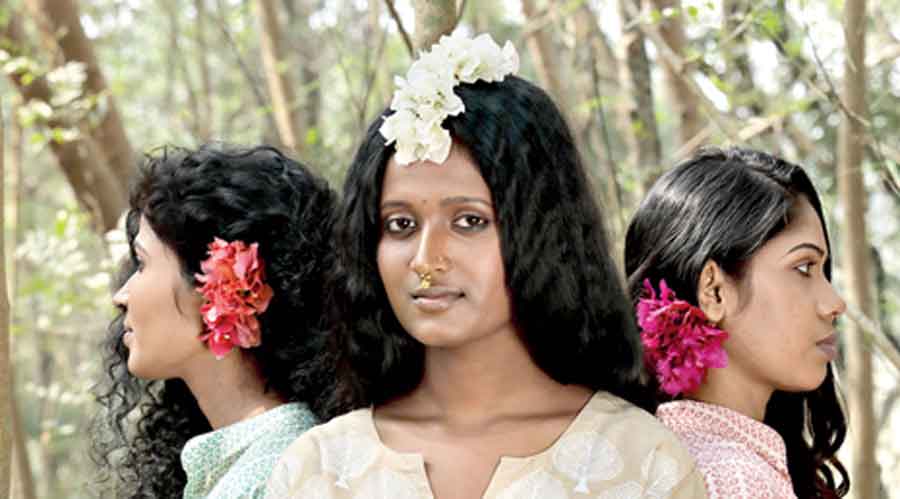Deshaj’s spring/summer lines Sakhi and Roshokoli are earthy and cool. Dipped in rustic charm and simplicity, they come with a sense of belonging and centring. We caught up with Sonali Chakraborty, one half of AIM (Art Illuminates Mankind), “a social welfare organisation” formed more than 15 years back, whose brand initiative is Deshaj. Her husband and artist Gopal Poddar is the other founder-member of AIM.
The collections look typical Deshaj. Easy- breezy and earthy. Can you take us through the making of the range?
The use of natural colour is one of the most important features of the collections. The core idea of Deshaj is to be entwined with nature. Sustainability being our chief goal, our brand aims to minimise the impact of our production on nature. Our focus is always on transparent pricing, high-quality fabrics, and sustainable manufacturing. From the choice of using organic cotton and sustainable, high-end fabric to the reduction in the use of chemicals, we have tried to contribute actively to environmental protection. Recycling fabric is another very cool and effective method in the reduction of fashion wastage, this is one of the defining aspects of our brand. Instead of using harmful dyeing chemicals, we prefer natural colours which protect our artisans from numerous health hazards.
Fashion to us is all about comfort. For our collections Roshokoli and Sakhi, we have particularly used natural indigo, grey and red. For this spring collection, we wanted to infuse vibrant colours and unique motifs, which particularly go with our theme.
Sakhi is a celebration of womanhood. There exists a unique bond among women. This bond of friendship gives women an outlet to vent their feelings and emotions. Women sometimes have to endure pain and grief alone. Sakhi aims to celebrate freedom of expression. It aims to liberate one from the shackles of its own emotions. Sakhi is the celebration of the deep-rooted feelings that women generally keep suppressing forever. Women should share more with each other and instead of feeling hopeless, they should rely on each other. Sakhi is a tale of love and friendship.
Roshokoli is more about this bucolic milkmaid and her courage to pursue forbidden love in the face of every obstacle. This has been inspired by the divine tale of love. The eternal love of Radha and Krishna. Radha is often said to be a sublime mystery, she is Rasika — the aesthete of passion. Her wild heart belongs to herself. She is the goddess of passion, the epitome of untamed beauty. She was truly empowered in love or better to say “the art of love”.
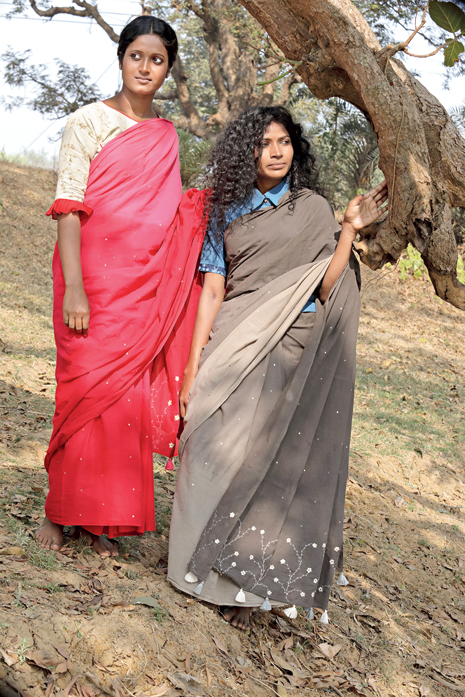
Roshokoli
Simplicity is what bowls us over about the Deshaj silhouettes. How has the brand merged simplicity with the contemporary over the years?
“Less is more” is our mantra. Deshaj has always believed in the use of minimal aesthetics. Even in the design of our cafe (Deshaj Store and Cafe; 32 Old Ballygunge First Lane), we have tried to keep it simple and elegant. Our collections contain many unique characteristics that make them more fluid. Our designs are warm and it holds the essence of contemporary style. The colours, motifs, and designs are chosen in a way so that it holds the contemporary look on the palette of modern fashion. Fashion is always evolving, therefore we have to incorporate new trends with classic designs. Contemporary is all about minimalism. It, however, has to borrow modern trends to evolve in these changing times. From bohemian elegance to classic sophistication, everything is about the style that suits you. Therefore we advise our customers to choose comfort over everything else.
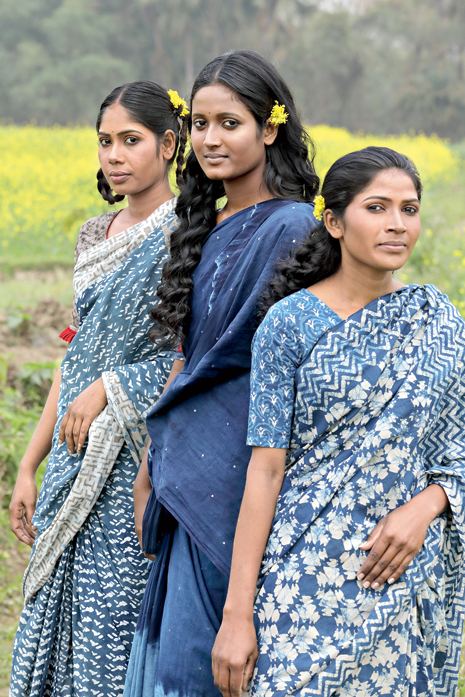
Sakhi
Tell us how you have accessorised the looks.
For accessories, we have kept it very basic. For Roshokoli we have mostly used antique jewellery that goes with the tone of the collection. We wanted to create the intoxicating look of Radha. There was a major emphasis on eye make-up. For Sakhi, it was all about an easy-breezy look. Most accessories used in styling Sakhi are fabric jewellery, made by recycling old fabrics which formed a major chunk of our waste.
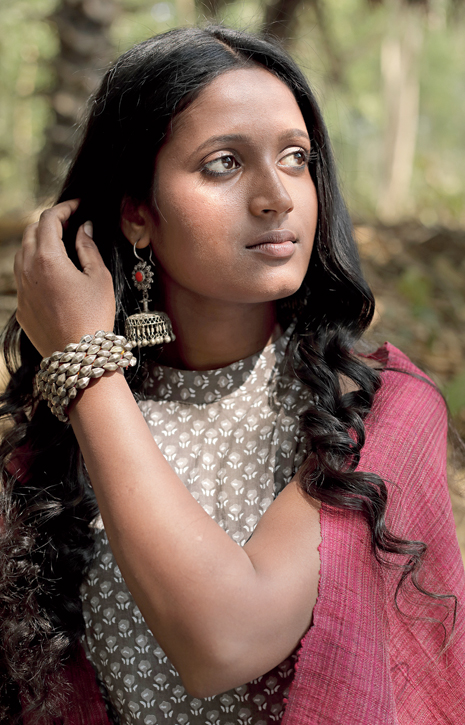
Roshokoli
What are some of your personal favourites when it comes to earthy fashion?
Personally I prefer comfort over anything else. Earthy tones, natural colours and breezy styles are my most favourite elements in styling. While choosing fabric, I mostly prefer cotton, linen, or any other soft breathable fabric. For accessories, I prefer simple designs. Silver jewellery is my all-time obsession. It brings a classic yet boho look.
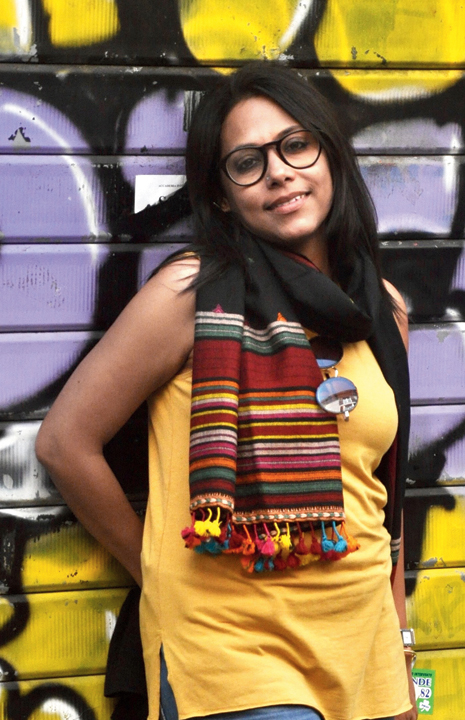
Deshaj is our fashion and lifestyle brand, led by tribal women and skilled craftsmen of rural India. It was born from the idea of taking “indigenous to international”. These products are made at Moram (Santiniketan) by our experienced and well-trained artisans. We have made a major contribution in the field of eco-fashion. We aim to provide livelihood opportunities for rural artisans and promoting the traditional art and craft of India. This is paving a way for poor tribal women to train themselves and become economically independent and socially recognised. We believe that art has the power to change the world — Sonali

